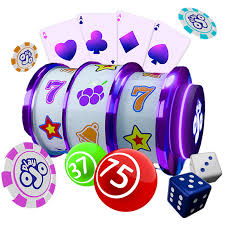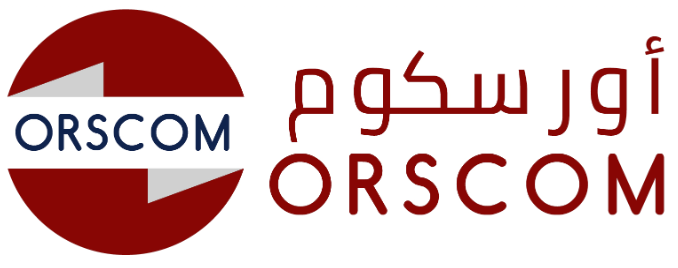
Exploring the Future of DAO-Controlled Casinos
In recent years, the world of gambling has undergone significant transformations, largely due to advancements in technology and changes in consumer behavior. One of the most exciting developments in this space is the rise of DAO-controlled casinos. These decentralized autonomous organizations are redefining the traditional casino experience, offering greater transparency, player control, and the potential for much-needed reform in the gaming industry. As we explore the intricacies of DAO-controlled casinos, we will discover how these innovations stack up against traditional models, as well as highlighting unique platforms such as DAO-Controlled Casinos betandreas casino that are embracing this new technology.
What is a DAO?
A Decentralized Autonomous Organization (DAO) is an entity that runs through smart contracts on a blockchain. Unlike traditional organizations, which have a centralized management structure, DAOs operate through consensus among their token holders. This means that decisions within a DAO are made collectively, ensuring that each member has a say in the governance of the organization. The utilization of blockchain technology guarantees transparency and security, making DAOs a promising alternative in various industries, including gaming.
The Emergence of DAO-Controlled Casinos
As the online gaming industry continues to expand, the need for innovation grows. Traditional casinos often face criticism for their lack of transparency and player trust. DAO-controlled casinos aim to change this narrative by allowing players to be stakeholders in the platform itself. In a DAO-controlled casino, participants can vote on critical matters, such as game offerings, payout structures, and operational decisions, effectively providing a form of democratic governance in the gaming space.
Benefits of DAO-Controlled Casinos

1. Transparency
One of the main advantages of a DAO-controlled casino is the level of transparency it provides. All transactions and decisions are recorded on the blockchain, allowing players to verify the fairness of the games, the payout rates, and the allocation of funds. This transparency fundamentally shifts the trust dynamics between the casino operators and players, fostering a more loyal and engaged user base.
2. Player Empowerment
In a traditional casino setup, players often feel like mere spectators, having no influence over how the casino is run. However, DAO-controlled casinos provide players with the opportunity to become active participants. By acquiring governance tokens, players can have a say in major decisions, creating a sense of ownership and responsibility towards the platform’s success.
3. Reduced Operational Costs
DAOs are built on blockchain technology, which can significantly reduce operational costs compared to traditional casinos. By automating many processes through smart contracts, DAO-controlled casinos can minimize overheads associated with staffing, infrastructure, and regulatory compliance. This cost-saving can be translated into higher returns for players, including better odds and higher payout rates.
The User Experience in DAO-Controlled Casinos
While the governance structure is a crucial aspect of DAO-controlled casinos, the overall user experience is also paramount. These platforms often feature user-friendly interfaces that cater to both seasoned gamblers and novices. By integrating popular and engaging games, DAO-controlled casinos can attract a broad audience while promoting transparency and fairness in gameplay.

Real-World Examples of DAO-Controlled Casinos
Several decentralized gambling platforms have emerged, showcasing the potential of DAO-controlled casinos. Projects like FunFair, DAO.Casino, and others are pioneering this new frontier, offering various games such as poker, blackjack, and slot machines. Each project has its governance model and tokenomics, highlighting the flexibility and adaptability of the DAO structure within the gaming context.
Challenges Facing DAO-Controlled Casinos
While the future looks promising for DAO-controlled casinos, there are still significant challenges that need to be addressed. One of the primary concerns is regulatory compliance. The gambling industry is heavily regulated, and navigating these laws can be complicated for decentralized platforms. Furthermore, the reliance on smart contracts means that any bugs or vulnerabilities could lead to significant losses, raising the stakes for developers and operators alike.
The Future of DAO-Controlled Casinos
Despite the challenges, the potential for DAO-controlled casinos is vast. As the technology matures and more players become aware of the benefits, it is likely that we will see an increase in such platforms. Innovations like incorporating virtual reality, augmented reality for immersive gaming experiences, or leveraging AI for personalized gaming will further enhance the offerings of DAO-controlled casinos. These developments promise to create a more engaging, entertaining, and fair gaming environment.
Conclusion
In conclusion, DAO-controlled casinos represent a significant shift in the gambling landscape. With their focus on transparency, player empowerment, and efficiency, they offer a compelling alternative to traditional casino models. As the industry continues to evolve, it will be essential for stakeholders to address the challenges that accompany this new approach to ensure its long-term success. With platforms like betandreas casino at the forefront, the future of gambling might just be more decentralized, transparent, and player-focused than ever before.
